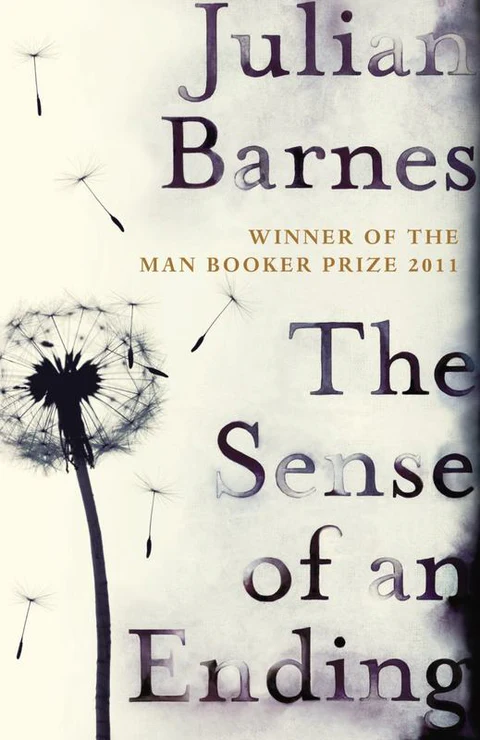About
Author: Julian Barnes (UK)
Genre: Individualist
Setting
Place: England
Time: 1960s, 2010s
My Rating (see what this means)
My Subjective Rating: 3
My ‘Objective’ Rating: 2.92
Introduction

I first read ‘The Sense of an Ending’ by Julian Barnes back in 2017 when I was much younger – and I broadly remember very much enjoying its writing and being very much disappointed by its ending.
Eight years hence, as I read the book again – hoping that age allows for a more circumspect judgement – I couldn’t help but chuckle on the irony of 40 years being insufficient for the protagonist Anthony (Tony) Webster to evaluate the events of his life.
The main plot point of the story is kicked off by an unexpected inheritance Tony receives from the mother of an ex-girlfriend from over 40 years ago – which kindles Tony’s understandable search for a reason why – through the foggy uncertainty of memory.
Re-reading the book – the conclusions of the younger me were perhaps not so off – the book is beautifully written but the ending is disappointing. Being a serious enough work of literature, this warranters a detailed explanation.
Synopsis
‘History is that certainty produced at the point where the imperfections of memory meet the inadequacies of documentation.’
40 years ago, after Tony’s relationship with Veronica ends and she eventually starts dating Tony’s close friend Adrian – the pissed Tony writes an angry letter and moves on. Rest of his life is a settled peaceable existence – with no more than life’s usual dissatisfactions to complain about. Divorced amiably with an ex-wife who is still a friend, and a grandfather now, Tony has enough time on his hands to endlessly pursue Adrian’s diary which is part of his unexpected inheritance – and which Veronica is refusing to give up. The pursuit also returns his angry letter back to him.

Discussion (has spoilers)
Tony Webster is a well written character – a standard unreliable protagonist – who isn’t being misleading because he has something to lie about but because he has himself bought into his lie. A very good choice to explore the themes of memory and self-perceptions and subjectivity of truth etc.
When he had learned about that his ex-girlfriend (Veronica) and a close friend (Adrian) have started to date he writes a nasty angry letter. Some of the nasty things he wishes for in the letter do come true – adding a layer of grimness to his nastiness. That doesn’t make him responsible for the cruelties of fate. Should he feel guilt/remorse still – sure! But –
The books suggests that this letter leads Adrian to go to his Veronica’s mum – Sarah (who supposedly had alluded to Tony that her daughter might be somehow damaged when they were still dating). While full details are unclear – Adrian ends up having relations with the mother resulting in the birth of a child – who is born with a mental health condition due to the mother’s advanced age. Adrian eventually kills himself – building up a convoluted logic to justify the suicide.
Even if say, Adrian would otherwise have not met his girlfriend’s mother without Tony’s letter (a ridiculous hypothetical), moral responsibility cannot lie with Tony for what followed. Or is Tony being blamed for breaking up with Veronica in the first place? Even more ridiculous of an argument!

While the book recognises the convulsion and stupidity of Adrian’s logic eventually as Tony realises that Adrian, who he always held in very high regard when they were teens, might just be a pompous philosophical buffoon and his suicide might be as dumb as the dumb suicide they had pitied as snobbish teenagers. The rest of the resolution remains wanting –
None of the past context is a good enough reason for Veronica’s mom, who had met Tony once in her life, to send him Adrian’s diary 40 years later. And for Veronica to remain pissed at him after all this years. Even if we are to presume that Sarah/Veronica were the pettiest of people for whom 40 years were insufficient to form a circumspect judgement of their own responsibility, and had taken the easy way out of making Tony the villain of the story – it seems pathetic to keep a nasty letter safe for 40 years. The letter ideally wasn’t worth reading fully the first time, let alone be kept as memorabilia. Worse, Veronica’s continued assertion that Tony doesn’t understand anything is plain stupid – because there is no way Tony could have foreseen what was to happen in Veronica’s life after he had cut all contact with them.
My most sympathetic reading would be that Veronica’s actions were just a way for the writer to build a suspense until the final chapters of the novel. A suspense though ultimately turns out pointless to the story. Thankfully the book is written well enough and is short enough for it not to have been a loss if it is read – twice even.
Picture Credits:
- Cover Picture: The Sense of An Ending Movie